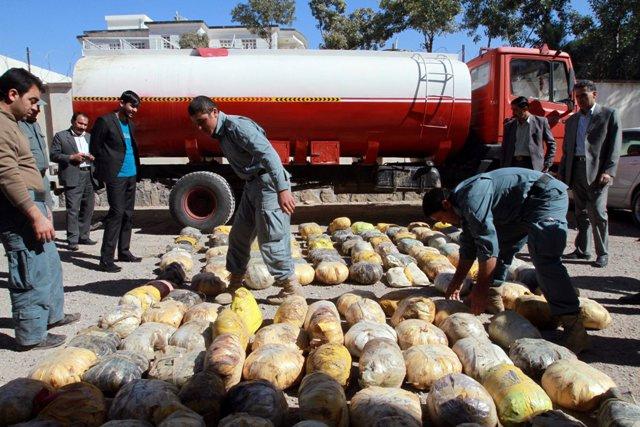KABUL, accounting for 74 percent of the illicit opium production last year, the United Nations Office on Drugs and Crime (UNODC) said on Wednesday.
In its 2013 World Drug Report launched in Vienna, UNODC said global opium production declined to 4,905 tonnes in 2012, 30 per cent less than a year earlier and 40 per cent less than in 2007 — thanks to a poor yield due to a plant disease affecting the opium poppy in Afghanistan.
UN Secretary-General’s Special Representative Ján Kubiš said: “Afghanistan’s large-scale drug economy is another source, driver and symptom of instability. This illicit production and trade simultaneously funds insurgent activity.”
If not curtailed, the drug commerce threatened to undermine Afghanistan’s institutions, security and economic self-sufficiency, the diplomat warned, saying its global and regional consequences demanded resolute and targeted action.
Around a million Afghans, between 15-64 years of age, are affected by drug use in the impoverished South Asian nation, according to UNODC data.
UNODC’s Representative in Afghanistan, Jean-Luc Lemahieu said: “The human suffering of Afghanistan’s drug problem is not only felt in the streets of the world capitals. It is creating havoc among its own citizens, dependent on a daily dose of opium and heroin above all – but also cannabis, painkillers and tranquilisers.”
He added many Afghans were taking drugs as a kind of self-medication to mitigate the hardships of life. “The criminals involved in trafficking and cultivating opium need to face the misery they create in their own neighbourhoods and among their brothers, sisters, cousins and friends…”
Addiction also posed a high social and economic cost, unlikely to be borne by the country’s current public budget, noted the UN agency, which voiced concern at the fact that only 10 percent of drug users had received treatment.
Lemahieu said: “More than 700,000 Afghans have no access to drug treatment. It is a silent and creeping tragedy and in name of international solidarity, I do invite the nations that are concerned about Afghanistan’s efforts to curb drug cultivation to help it overcome its drug-related health crisis.”
pr/mud
Views: 4









GET IN TOUCH
NEWSLETTER
SUGGEST A STORY
PAJHWOK MOBILE APP